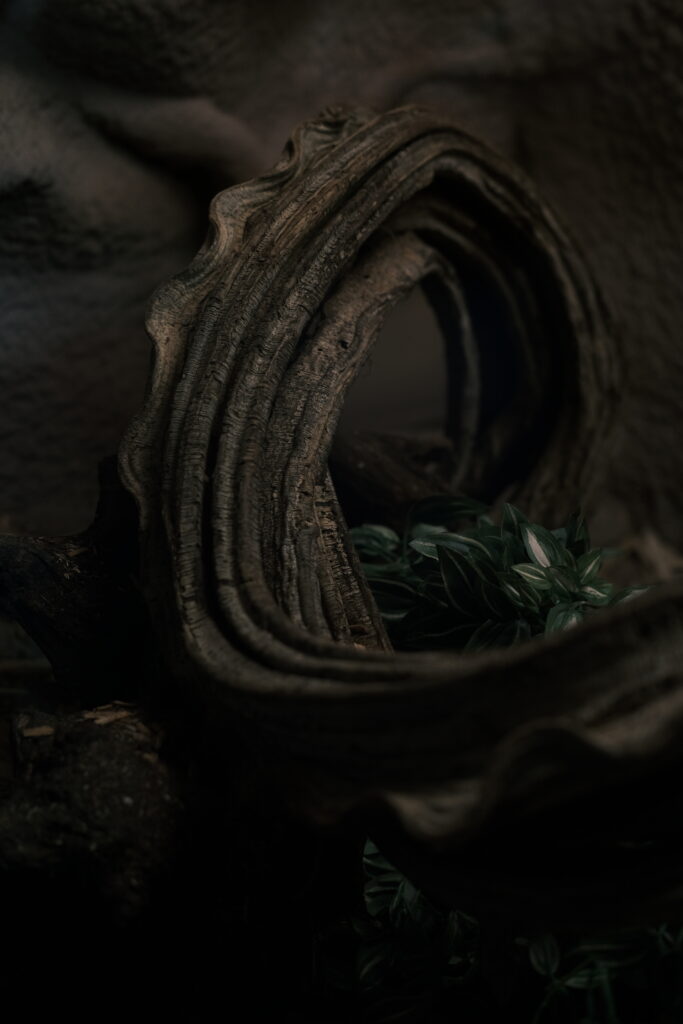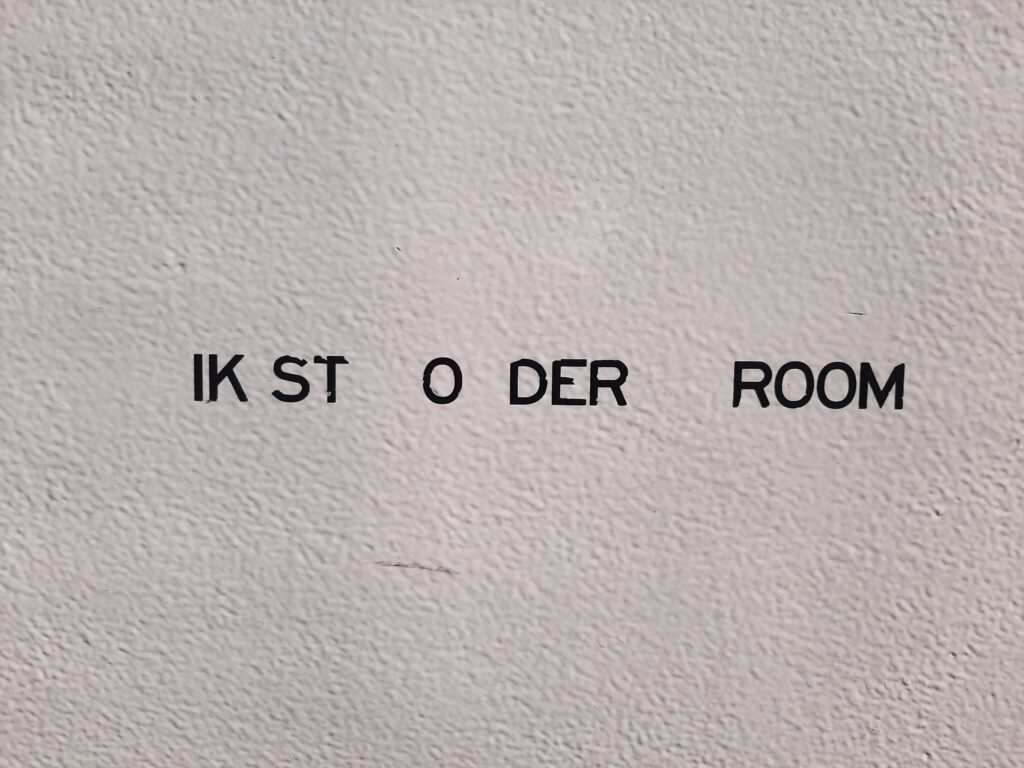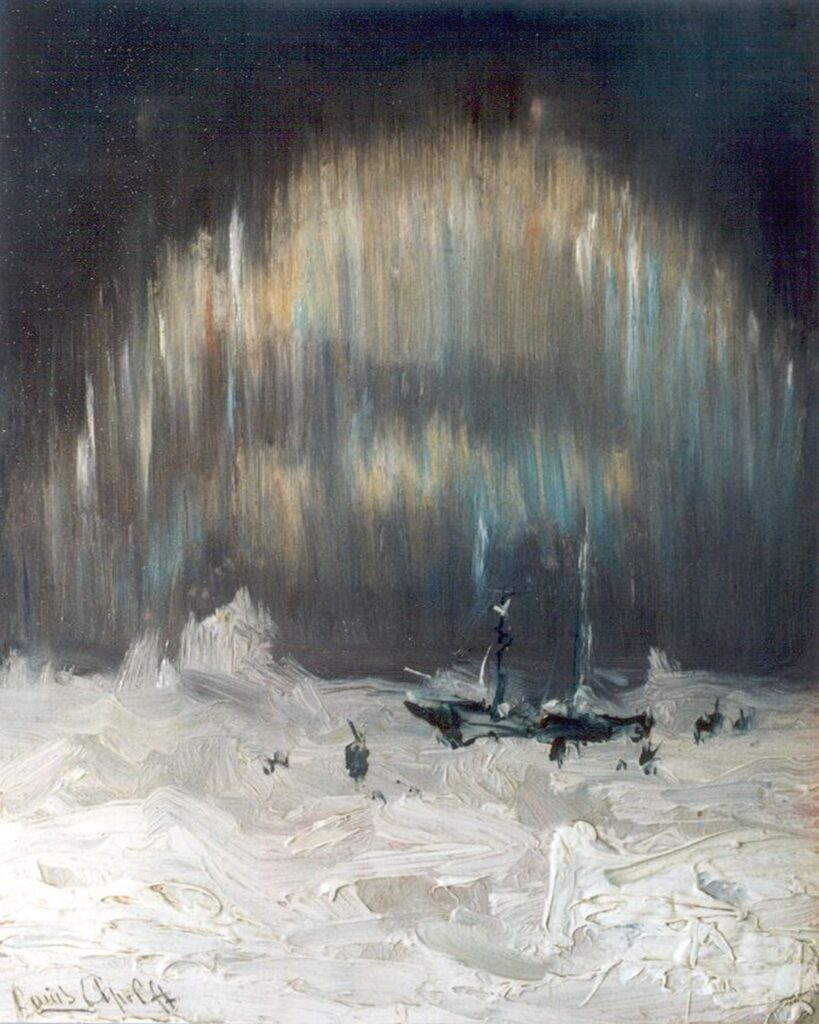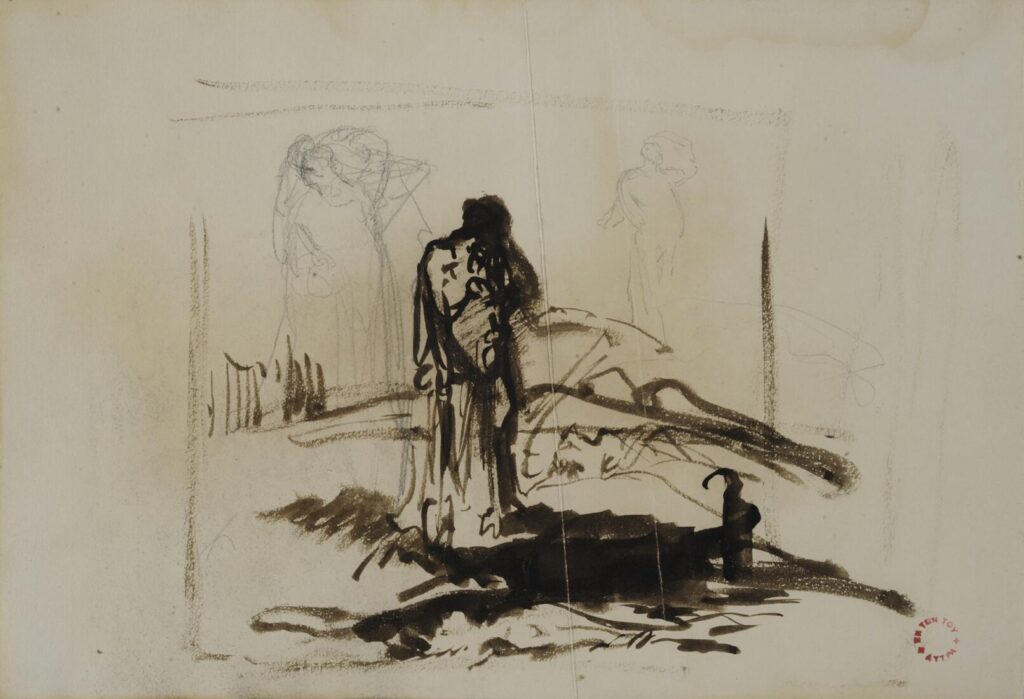(part one of three)
By Ricardo Domeneck
“We shall eat your dead father, the Maï repeated and repeated.
They shall cook me in a stone pot, the Maï said.
They shall eat me once again in the inside-out sky, they said.”
“Song of the blossoming chestnut tree”, as sung by Kãñïpaye-ro, poet-shaman of the Araweté,
recorded by Eduardo Viveiros de Castro. My version, from Castro´s Portuguese translation.
The Maï are the divinities among the Araweté
Articles of this nature often begin with a series of disclaimers, attempts at justifying its act of selection, which is always violent. When working with the past, one can find refuge in the canonical choices of previous generations, but dealing with the practice of your contemporaries means you must tread shifting grounds, balancing yourself between tectonic plates.
One of the huge problems in such a task is that Brazil, a country of continental proportions, tends to be seen by ourselves and others as “unified”. One language, one culture, much in the way we look at other continental-sized countries such as Russia or China, forgetting the myriad of “minor” languages spoken in the countries, unprotected by oficialdom, hiding “traditions-other”, if you allow me the strange construct.
This seems particularly forbidding for my present task when I think of Brazil, a territory where nothing is more efficient than the agents of the status quo. A Nation-State unified in its territory after the independence from Portugal, unlike Hispanic America which broke into several republics, because every single rebellion and every single revolution was crushed by a centralized Government without mercy. When asked why Brazil enjoys such an image of peace when discussed abroad, if I myself constantly talk of its violence, I usually say that this phenomenon takes place because at every instance of rebellion, nobody is left alive to tell the story.
I once wrote on the same matter saying that one must escape the danger of discussing “contemporary Brazilian poetry” as if “contemporary”, “Brazilian” and “poetry” possessed some sort of quidditas, a given essence agreed upon by all. Just to mention this fictive “Brazilianness”, Mário de Andrade, an important Modernist poet and theoretician from São Paulo, in the south of Brazil, once wrote in a poem about a man, living in the North and having just come home from work, ending the poem, called “Discovery”, with the line: “This man is as Brazilian as I am.” But are all experiences in the territory as Brazilian as the next one? Carlos Drummond de Andrade (1902 – 1987) had already questioned this in a poem apropriately titled “National Anthem”, from his first book, saying in its last lines:
”Our Brazil is in another world. This is not Brazil.
No Brazil exists. Would Brazilians however exist?”
And if they do exist, when have they begun to? Take any school manual for Brazilian Literature and the answer will be: 1500, with the “arrival” of the Portuguese, which I will ask your permission to rewrite here as the Invasion of the Portuguese. Their choice is political and clear: Brazil and Brazilians, and therefore Brazilian poetry, produce and express themselves in Portuguese.
But that lands us right back on the problem of some voices in the midst of much silence. Either we consider Brazilian Literary Tradition as beginning in 1822, when the country became independent of Portugal, or we must consider the production of signs in that territory from its very beginning. After all, German Poetry does not begin in 1871. Again, we are faced with a decision which is not only literary, but political.
Megalomaniac, maybe – but a political choice
“This is not literary criticism, Ricardo. This is anthropology.”
a Brazilian poet and friend, reacting to the first draft of this article.
What Jerome Rothenberg has called Ethnopoetics in his critical work in the United States, has only found practitioners in Brazil in the past couple of decades. In anthologies like “Technicians of the Sacred” (1968) and “Shaking the Pumpikin: Traditional Poetry of the Indian North Americas” (1972), Rothenberg collected poetry from ancient cultures such as the Maya and Egyptian, along with poetry from the early 20th century indigenous cultures, creating parallels between their language art practices and those of our historical avantgarde which showed us the true meaning of what tradition could be, beyond our romantic notions of the “national”, and displaying what true historical synchrony could mean to our literary studies.
This is important to note because when I start discussing a few poets and poetic practices in Brazil today, conducted in Portuguese, it must be clear that several traditions are still active in Brazil today, in indigenous languages, striving to survive, and this article will have silenced all of them.
Signs on the land
“La nature est un temple où de vivants piliers
Laissent parfois sortir de confuses paroles
L’homme y passe à travers des forêts de symboles
Qui l’observent avec des regards familiers.”
Charles Baudelaire, “Correspondances”
The territory now known as Brazil has been inhabited for at least 10.000 years. The oldest human remains found in the country belonged to a woman, nicknamed Luzia, dated roughly 11.000 years old.

Cave paintings at Serra da Capivara, Piauí State, Brazil
These early and primeval inhabitants left us the first “signs” inscribed in the territory. A personal favorite of mine, from these early signs, is a painting at Serra da Capivara which other romantics like myself have called “The Kiss”.

Cave painting, “The Kiss”, Serra da Capivara, Piauí, Brazil
In the Island of Marajó, the Marajoara Civilization developed sometime between the years 800 and 1200, leaving sophisticated artifacts behind, before disappearing. We know very little about them.

Burian urn from the Marajoara civilization, 1000-1250 AD, American Museum of Natural History.
In the 1980s, due to the rapid deforestation in the Amazon, hundreds of geoglyphs emerged and became visible, after being hidden for centuries under the trees. Thinking of Baudelaire´s quotes, one could speak not of a “forest of symbols”, but “symbols under the forest”. Some have been dated to 2000 years ago and nobody has been able to ascertain which culture produced them, and what purpose they served.

Geoglyph in the Brazilian state of Acre, in the Amazon
These geoglyphs are not only apt images for the hidden past traditions in the Brazilian territory, but also for the hidden traditions in our times.
At the time of the Portuguese invasion in 1500, hundreds of languages were spoken in the territory, each with its poetry and cosmogony. Today, around 250 of these languages have survived, though they are among the most endagered on the planet, some of them spoken by a handful of survivors.
But these traditions, hidden in the autochthonous languages of the country, are hidden even from us, mainly for our historical lack of interest and respect for those cultures.
Some fragments from the ruins we wrought them
Only recently have we had more access to the poetic tradition of a few autocthonous cultures. If I begin my discussion of contemporary Brazilian poems with these texts, it is not because I want to present them as “pre-Columbian” art, “before-now”. These poems and songs were collected in the past 30 years, sung by poets who are our contemporaries.
Neither do I wish to work within the dangerous assimilationist mentality which has been so disastrous to the autochtonous people in the territory, an official approach which believes Native Brazilians should be assimilated into the “general” Brazilian culture, heretofore disappearing. My attempt is to show some of the multiplicity of a country so entrenched in its divisions.
And here all I can do is pay tribute to some translations which have brought a few of these traditions closer to us. One importan text to me is the song from which I took my epigraph for this article, sung by Kãñïpaye-ro, a poet of the Araweté people, recorded by Eduardo Viveiros de Castro in the 1980s. Viveiros de Castro discusses the language and cosmogony of the Araweté in his book “From the Enemy’s Point of View: Humanity and Divinity in an Amazonian Society”. Brazilian poet Antônio Risério, an important figure for Brazilian ethnopoetics, discussed the poeticity of the song at length in an article called “Cannibal words”: especially its poliphony, which could be perceived as providing a foothold for our poetics in the polyphonic work of some avantgarde writers. There is a constant shifting of voice, at times enunciated by the poet, at times by the Gods, at times by dead members of the poet´s family.
Charles Bicalho has worked and translated songs from the Maxakali, such as the “Sacred Song of the Leaf”, composed with an extreme economy of means. The poem-song, which the Maxakali call yãmîy in their language, fuses its rhythms with the very movements of nature, in a cycle of constant renewal and repetition. The movements of the leaf and the poem as interconnected:
hu yu yux
hu yu yux
leaf comes
flying with
yãmîy comes
falling with
leaf comes
flying with
yãmîy comes
falling with
hu yu yux
hu yu yux
Other invaluable efforts include the work of Pedro Cesarino, who has recently published a translation of the “Yawa shõka”, or “Song to attract wild pigs” from the Marubo people.
Bruna Franchetto is currently working on the translation of female songs from the Kuikuru, and Douglas Diegues, an important Brazilian poet living close to the border of Brazil and Paraguay – where the Guarani language is still spoken by a significant part of the population, has recently published his translation of the “Ayvu Rapyta”, a long and powerful poem from the Mbya Guarani.
Brazilian poetry hasn´t been totally impervious to these traditions. The most important Brazilian poet in the XIX century, Joaquim de Sousândrade (1832 – 1902), delved into the Amerindian cosmogonies to write his epic “O Guesa” (1884), of which the most famous canto is the highly experimental “Wall Street Inferno”, with its babelic poliphony of languages.
he Wall Street Inferno (1884) – excerpts
Joaquim de Sousândrade, translated by Odile Cisneros.
1.
(Guesa, having traversed the West Indies, believes himself rid
of the Xeques and penetrates the New-York-Stock-Exchange;
the Voice, from the wilderness:)
– Orpheus, Dante, Aeneas, to hell
Descended; the Inca shall ascend
= Ogni sp’ranza lasciate,
Che entrate…
– Swedenborg, does fate new worlds portend?
2.
(Smiling Xeques appear disguised as Railroad-managers,
Stockjobbers, Pimpbrokers, etc., etc., crying out:)
– Harlem! Erie! Central! Pennsylvania!
= Million! Hundred million!! Billions!! Pelf!!!
– Young is Grant! Jackson,
Atkinson!
Vanderbilts, Jay Goulds like elves!
109.
(At the roar of Jericho, Hendrick Hudson runs aground; the
Indians sell the haunted island of Manhattan
to the Dutch:)
– The Half-Moon, prow toward China
Is careening in Tappan-Zee…
Hoogh moghende Heeren…
Take then
For sixty guilders … Yeah! Yeah!
110.
(Photophone-stylographs sacred right to self-defense:)
– In the light the humanitarian voice:
Not hate; rather conscience, intellection;
Not pornography
Isaiah’s prophecy
In Biblical vivisection!
118.
(Apocalyptic visions… slanderous ones:)
– For, ‘the Beast having bear’s feet,’
In God we trust is the Dragon
And the false prophets
Bennetts
Tone, th’ Evolutionist and Theologian!
175.
(Practical swindlers doing their business; self-help Atta-Troll:)
Let the foreigner fall helpless,
As usury won’t pay, the pagan!
= An ear to the bears a feast,
Caressing beasts,
Mahmmuhmmah, mahmmuhmmah, Mammon.
This attempt at a dialogue also left a mark on the works of Raul Bopp (1898 – 1984) and Oswald de Andrade (1890 – 1954), two important Modernists from the Group of 1922. Among contemporary poets, apart from Douglas Diegues (b. 1965), Sérgio Medeiros (n. 1959) has also worked with these traditions in his own poetry, as in his book “Totens” (2012), and in his translation of the Mayan text of the “Popol Vuh”. The word “totem” has a powerful ring in Brazilian poetics, going back to Oswald de Andrade, who wrote in his “Anthropophagic Manifesto”:
“The permanent transformation of tabus into totems”
André Vallias seemed to have followed that lead in his recent “Totem”, a sound and visual poem which names the numerous tribes currently fighting for survival in Brazil, against the genocidal industrialization plans of the Brazilian Government.
André Vallias, “Totem”
The crimes being perpetrated by the Brazilian Government today against the indigenous peoples have awakened several intelectuals and writers to these traditions. In a recent anthology, for the first time a series of Amerindian Songs were also collected among other historical Brazilian poets, including texts from the Araweté, the Bororo, the Kashinawá, the Marubo, the Mbya Guarani and the Maxakali. But there certainly is still much to be done.
Voices rise in the midst of genocides

“Oriki Orixá”, translations by Antônio Risério of the “orikis”, Yorubá songs to invoke the Orixás (Yoruba divinities)
While diligently continuing the genocide of the Amerindians begun by the Portuguese, Brazil embarked on its next genocidal enterprise, becoming the country which most kidnapped and enslaved Africans in the world. No country in the Americas had a larger slave population, with statistics speaking of numbers that range from 3 to 5 million men and women. The United States, for example, kidnapped and enslaved half a million. These African people, coming from various tribes, brought with them their languages, poetry, dance and Gods. Thanks to them, under the monotheistic surface of the country still bubbles the polytheism of their ancestors.
In the midst of the horrors of slavery, they gave the country not only some of its most powerful folk traditions, but left their mark – already in the XIX century – in Literature, as in the poems of Cruz e Sousa (1861 – 1898), a son of slaves who became our most important symbolist poet and comparable only to Sousândrade in the period; and the great Machado de Assis (1839 – 1908), to many the most important writer ever born in Brazil – a grandson of slaves.
The sung poetry of Brazil is unthinkable without their contribution. Some of the cultural expressions most closely associated with the country today come from their experience – the religion of Candomblé, the various music forms such as samba and choro. And yet, most of these poetic and cosmogonic expressions were still forbidden by law in Brazil up to the 1930s. The samba poets, as we call them, gave us a modern oral tradition which still enlivens our poetics. I would have to mention three of them here: Noel Rosa (1910 – 1937, a white man), and the great Angenor de Oliveira (1908 – 1980), better known as Cartola; and Antonio Candeia (1935 – 1978), better known as Candeia, who were not only great musicians, but oral poets of subtlety, irony and sophistication.
Cartola, “O Mundo é um Moinho/The World is a Mill”
It is still early, love
You have not yet begun to know life
And you announce it´s departure time
Not knowing what path will guide you
Heed my words, darling
Though I know you made up your mind
In every corner falls a little of your life
And soon you shall not be who you are
Pay attention, dear
The world is a grinding mill
It will crush your petty dreams
Reduce your illusions to smithereens
Pay attention, my sweetheart
From each love you shall inherit just cynicism
Before you know it, you will face the abyss
An abyss you carved with your own feet
In contemporary practices, the heritage of the African poetic tradition can be felt in the work of three poets, among others: Ricardo Aleixo (b. 1960), Edimilson de Almeida Pereira (b. 1963) and Leo Gonçalves (b. 1975).
Aleixo is one of the most important performance and sound poets in Brazil today, drawing both from the Concrete Poetry movement of the 1950s and the International Sound Poetry avantgarde, to which in the last years he has merged his sensibility with the Afro-Brazilian traditions of performance and vocal textualization. The result, to me, has been one of the most powerful examples of the synchrony moving through various traditions: through the body of poets. In his “Poemanto/Poemantle”, dressed in a mantle sewn by himself with words from his texts, he performs a ritual that reconnects Brazilian poetry both to the African traditions as to avangarde performance practices of the 1960s. This connects him as well to the great Brazilian artist Arthur Bispo do Rosário (1925 – 1989).
Ricardo Aleixo, performance with the “Poemantle”.
Schlangenkopf
Ricardo Aleixo
die schlange verschlingt den eigenen schwanz. die schlange denkt, sie verschlinge den eigenen
schwanz. die schlange denkt ja nur, dass sie den eigenen schwanz verschlingt. die schlange
verschlingt den eigenen schwanz, der denkt. die schlange verschlingt den eigenen schwebenden
schwanz. die schlange denkt, der eigne schwanz schlingt. die schlange denkt mit dem eigenen kopf.
die schlange träumt, sie simuliere ihr eigenes zischeln. die schlange träumt, eine andre schlange zu
sein, die den eignen traum und das zischeln nur simuliert. die schlange denkt und zischelt hinein in
den dschungel. die schlange träumt, sie denke, und denke im traum, dass schlangen träumen. die
schlange denkt, sie träume und im traum denkt sie, dass schlangen denken. die schlange
verschlingt, ohne zu denken, das, was ihr gelingt. die schlange denkt, sie verschlingt ihre eigene ur
sache. die schlange denkt und schlingt in eigener sache. die schlange verschlingt nur, was sie denkt.
die schlange denkt, dass sie denkt, und verschlingt, was sie denkt. die schlange verschlingt, was sie
denkt und verschlingt. die schlange denkt, was die schlange denkt. solange denkt sich die schlange
als schlange. die schlange denkt sich, solange sie ist, was sie denkt. die schlange denkt, was
schlangen denken. die schlange verschlingt, was die schlange denkt. die schlange verschlingt, was
schlangen verschlingen. die schlange verschlingt, was ihr gelingt. die schlange denkt, sich zu ver
schlingen. die schlange schlingt ohne zu denken, was ihr gelingt. die schlange verschlingt ohne zu
denken, was sie verschlingt oder was ihr gelingt. die schlange verschlingt, was sie verschlingt. die
schlange schlingt, solang es ihr gelingt. die schlange denkt nur das wort schlange nicht. die schlange
schluckt das wort schlange nur nicht. der schlange gelingt, was ihr gelingt, ohne worte. die schlange
verschlingt, was ihr gelingt, ohne angemessene worte. die schlange misst von hinten bis vorn den
eigenen kopf. die schlange vollstreckt das eigene urteil. die schlange verschlingt den eigenen kopf.
(Deutsche Fassung von Barbara Köhler. Die Übersetzung entstand im Rahmen des Übersetzungsworkshops Versschmuggel des Poesiefestivals Berlin 2012)
§
Edimilson de Almeida Pereira is one of the most important professors and researchers of the Afro-Brazilian poetic tradition, and his
work is among the strongest in the country, drawing both from this tradition as from other melopea-based practices in 20th century poetry.
Poems by Edimilson de Almeida Pereira:
Visitation
The horse of all questioning will bend my body
to the ground. Perhaps your reason and sadness
will comfort me. Once the sun burned; now
it murmurs a lament of flame and cloud. Your life
is no longer and forever settled on the beginning
of the world. I am the horse and also its negation.
Your peace leaves me apprehensive. Your head
spins, your baggage of changeable mirrors: you
didn’t even come out, O know one on speaking legs.
§
Destinations
Time dealt the cards on the policemen’s ribs. No, there
is no truth – only hypocrisy and violate clay. I turned
myself into a dog in the red dawns. And there I felt
the misery of the impossible forms. Demons are as
impersonal as masks of ash. I will turn into mercy
first, and then into reckless abandon. Destiny amuses
me, my feather of sunflowers lacerates me.
§
Praying Mantis
The hunter prays for the visceras’s innocence. Prays
to me, creator of the world, bruising and adored prince.
For whom sacrifices are little comfort. The piece of the
last vegetable request your prayers – the last piece,
remember. My thirst is the promise: O hunter! O hunter!
Are you not my sacrifice? Give me your suffering. The
lit bones of purification.
§
Circle of singers
To hear in your whirling and return the force that speaks to us:
only one was lost; this is how we came.
Who else? The rhythm recovers us; the one which is the most
behind will be the one least absent. Your other life rolls in
this brief one. Your body over our soul dances until it bursts.
§
The dancer
Time above the banners.
What remains is the fire and shining,
always a risk.
The pain does not threaten the body.
The sweat is old, and life
advances toward the morning.
Time and its heel
are mysterious the way my steps
are my body’s celebration.
I recite the religion of calluses.
§
Leo Gonçalves, born in 1975 (all three poets were born in the state of Minas Gerais), continues this tradition within my generation, producing textual, performance and sound poetry, along with a steady work of translation into Portuguese of poets such as Aimé Césaire, Edouard Glissant, Birago Diop and Tchicaya U Tam´si.
Language of Aruanda
Leo Gonçalvesmy grandmother who was the daughter of a daughter
my grandmother who was the grandma of a grandma
stuttered and sang as a young girl
a song lost in the farthest away
a song that I myself still sing by heart
not knowing what it means
unsure if I sing it right
I know that when I sing
my body hums
my blood flows
and there isn’t an evil eye that survives
this ancient song
that my ancestors carved in the echo
of my grandparents’ voices
Performance: voice and body, presence and video
As the performance roots of Brazilian poetry lie on the bosom of subjugated peoples, the Amerindians and Africans, it may not come as a surprise that it remains an underground force in contemporary practice. Joined by the Iberian troubadour tradition, it has created one of the healthiest oral traditions in the Americas, ranging from the repentista tradition in the Northeast to the samba poets of Rio de Janeiro, Belo Horizonte, Salvador and São Paulo. Debates on whether the sung poetry of the country should be considered “literature” still bore us to death to this day. But with the advent of the Internet, things are clearly changing. Ricardo Aleixo and Leo Gonçalves, mentioned in the previous section, work in that field. Marcelo Sahea (b. 1971) is another example of poet who has been operating in the textual field through sound and performance. Poets born in the 1980s slowly join forces with these other voices and mark a clear critical shift in poetic practice and perception. Brazilian video artists from the 1960s and 1970s are rediscovered and become references to poets, as in the case of Letícia Parente (1930 – 1991) and Geraldo Anhaia Mello (1955 – 2010).
Letícia Parente, “Registered Trademark” (1975)
§
Geraldo Anhaia Mello, “The situation” (1978). The text is simply the repetition of “The political, economic, cultural and social situation in Brazil”, while the artist gets drunk on cachaça.
Poets like Marília Garcia (b. 1979), Érica Zíngano (b. 1978), Reuben da Cunha Rocha (b. 1984), Tazio Zambi (b. 1985), Luca Argel (b. 1988) and Victor Heringer (b. 1988) have been producing oral poems with the support of video. Poetry as genre becomes quite indeterminate in some cases. Their practices range from the vocalization of what I like to call “analytical lyricism”, as in Garcia and Zíngano, to conceptual poems like “Ficção”, by Luca Argel.
Luca Argel, “Ficção/Fiction” (2012)
§
Victor Heringer, “Mom used to read the future in sugar” (2012)
[Caliban:]
In the midst of a tempest, on the top of a mountain, Shakespeare created the word “dream.”
Before him, men dedicated time to interpreting them, the dreams, not the word “dream.”
Men also used to incubate dreams to foresee the future – men´s future, not of dreams nor of the word “dream.”
Some say Shakespeare made things even more confusing by inventing the word “dream.”
Some say the opposite.If men had foreseen the future of the word “dream,” they would have seen
the lottery,
the jackpot,
the sweepstakes,
the Hot Lotto,
the MegaDollars,
the gambling in Vegas: a probable tempest.
And they would say: thus is the life of men, not the life of dreams nor of the word “dream.”The word “dream” when read in a specific frequency, sounds like this: [Sound of the word “dream” as interpreted by a program converting image into sound] (Pause) It is clear that the word “dream” (not the dreams or men) does not sound good. Nobody using the word “dream” nowadays goes unpunished. Some say it is kitsch. Books and poems with the word “dream” in their title sell badly. To survive, their authors try the lottery, the jackpot, the sweepstakes, the Hot Lotto, the MegaDollars, gambling in Vegas. The candy called Dream sells well because it is edible.
[Choir]
Mom used to read the future in sugar.
Mom ate mud.
How beautiful our mountain was!
Caliban wants to know why men applaud the sunset
and change the course of rivers.(…)
§
Reuben da Cunha Rocha, “Nailbox”, performance in England (2012)
“z de zero / z in zero” – Reuben da Cunha Rocha a.k.a. cavaloDADA + Tazio Zambi
Text & video: Reuben da Cunha Rocha a.k.a. cavaloDADA / Sound: Tazio Zambi
z) since the invention of trains things have been far ahead of words:
no + use calling them by name <<< to grasp sm thng in the sea of
transgenic gello of the real it would be necessary to give up vanity
which is labeling stamping cardboard boxes in alphabetical order <<<
instead look at what they are how they smell function these
terrestrial bodies territories tumults in each rotation out of thmslvs
<<< see thngs as they are: forever unknown <<< that christian marclay
track made solely of vinyl crackling processed eletrnkll <<< in “more
encores” he manipulates vinyls e.g. from strauss chopin john zorn
louis armstrong jimi hendrix maria callas and overlays instigatingly
2ways of hearing causing the listener to oscillate <<< fluctuations in
perception´s tone <<< to hear how the bee´s thousand eyes see <<<
octopus vibrations <<< to tell the truth, i spent years listening to
alva noto (the german visual/sound artist) thinking it was japanese
electronic music <<< 1day i heard him say he had run out of working
material and decided to experiment with sounds: not a matter of music
but to find 1new code to create 1 knows not what <<< what about the
textualities of a wooden splinter a cutter a hairy cloud of 1 cunt?
<<< inhuman doses of electronic music have kept me for years
suspicious of any type of identitary proposals <<< for me it became a
matter of discovering inscriptions and not sitting writing wanting to
grasp too stable categories poet writer even artist <<< i prefer djs:
who scratched the vinyl till they came up with turntablism, ethereal
vinyl sculpture, 1art on the margins of hip-hop etc. <<< or e. e.
cunnilingus cummings acrobat with typewriter and ink <<< alva noto
sculpts the wave´s design directly into the computer (non musical
mediation for his art of music making) sound sculpture / science <<<
allen ginsberg made all of “the fall of america” on a taperecorder
while traveling by car train plane through the 1970´s usa <<< exu of
the seven crossroads <<< when josé agrippino de paula looked for jorge
bodanzky to make “III world hitler” he (agrippino) said “i have 1
movie in my mind but i know shit about technical apparatuses” <<<
which means knowing nothing about cinema: and yet <<< the pixadores
are the only contemporary artists (apart from hackers and skaters) who
maintain their status as criminals but they could only gain from
knowing who josé roberto aguilar is <<< transmedia pixo <<< archaic
imagination´s futurism <<< bodanzky already worked with cinema every
end of the month he would take agrippino filmroll leftovers <<< they
would leave with pieces of film to improvise with actors <<< the codes
of each art proliferate as in rabbits breeding, which makes me doubt
the possibility to keep saying e.g. photography theater poetry <<<
genre is a ghost as is the newspaper <<< many creators are far ahead
of the categories in contemporary art <<< how would you like to define
yourself in case you were björk oiticica dj spooky? to tell the truth
i wouldn´t even like to have a name <<< z in zero
§
it’s a love story and it’s about an accident
by Marília Garcia, as translated by Hilary Kaplanat first, a frozen scene
a finger lands on the glass,
the screen trills.
do you remember
what you said then? did you yell? did it hurt?
do you remember what happened?
the bend, the rain, bright bang.
(then she ended,
sent to belfast)
do you remember what you said
as the car skidded?
three hours waiting in the rain,
the bend, the blast, remember?
you between the steel frames
asking what happened.
(but that was an accident
about a love story.)
love, you say, is a special effect
you think you’ve seen it all
but when the lights come on
the blind spots spread:
an ocean trench, a cloud
away and a city called Glass
or Vertex
Volpi or Verdi
love is someone getting into
your hand’s geometry
just then you cross the corridor
this is no longer between us
from where the labored timbre of your voice
(inside the poem
you feel the laboring effect
and all the whys echo
in a conch shell)
that’s love, you say,
not a crow but a red raincoat
hanging on a window, come from another poem
to play on your screen.
it’s you eating the yellow left
after the blast.
love is a look that stains
the retina in an emergency
a grey eye that trembles
when you cross hemispheres.
“it’s hard to look
directly at
things” they are too
bright or too dark.
two-thirds of this country is made out of water
every time you turn around, a
drowning.
just a dive,
said the image. let’s see the desert,
walk around the center of the universe?
but this is a dictionary
and it’s about a love story.
–
love story, a-z
a finger lands on the glass
a grey eye that trembles
about a love story
after the blast
an ocean trench
and all the whys
and it’s about a love story
as the car skidded
asking what happened
at first
away
bright
but that was an accident
but this is a dictionary
but when the lights come on
do you remember
do you remember what happened
do you remember what you said
directly
drowning
every time you turn around
from where the labored timbre of your voice
hanging on a window
in a conch shell
inside the poem
it’s hard to look
it’s you eating
just a dive
just then you cross the corridor
love, you say, is a special effect
love is a look
love is someone getting into
not a crow but a red raincoat
or vertex
said the image
sent to belfast
that’s love, you say
the bend, the blast, remember
the bend, the rain, bright bang
the blind spots spread
the retina in an emergency
the screen trills
then she ended
things
this is no longer between us
three hours waiting in the rain
to play on your screen
two-thirds of this country is made out of water
volpi or verdi
walk around the center of the universe
what you said then
when you cross hemispheres
you between the steel frames
you feel the laboring effect
you think you’ve seen it all
your hand’s geometry
TO BE CONTINUED
–
This article is part of a collaboration between Babelsprech, Hilda Magazine and Samplekanon
and was published online by all three participants.











4 thoughts on “Contemporary Brazilian Poetry, In The Singular: Giving Voice to a Few Tongues, Silencing Hundreds (in the best Brazilian style) (1)”
Comments are closed.